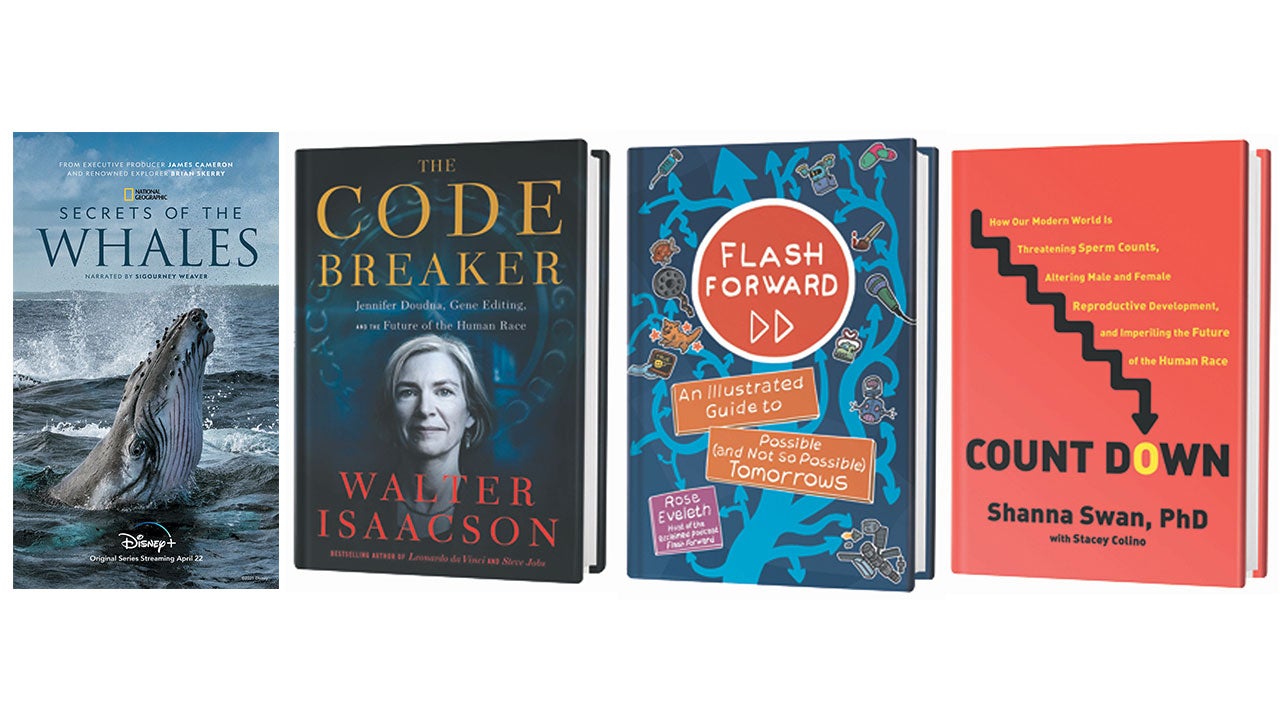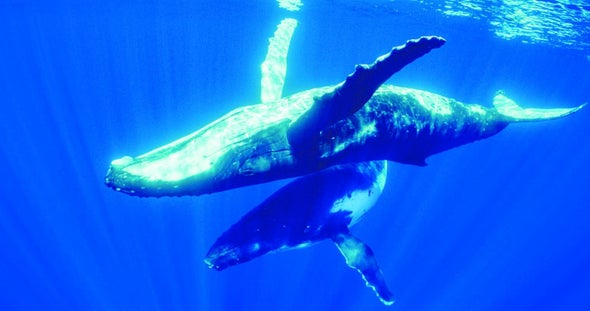Secrets of the Whales
by Brian Skerry
Streaming on Disney+, starting April 22
Despite being warm-blooded, air-breathing mammals descended from land animals, whales give birth, nurse and raise their young entirely at sea. This sweeping four-part series takes a riveting view of these mysterious and mesmerizing ocean dwellers. Executive produced by James Cameron and narrated by Sigourney Weaver, the series' chief message is that whales are more than sea creatures: they have sophisticated communication, close-knit families and even culture. Photojournalist Skerry journeys alongside different whale species, capturing their specialized hunting tricks, idiosyncratic lingo shared within pods and the heartbreaking grief they carry for their dead. Facing not only the harsh daily travails of life in the deep, these majestic beasts must draw on their uncanny cleverness to adapt to the changing conditions of the open oceans and the planet.
The Code Breaker: Jennifer Doudna, Gene Editing, and the Future of the Human Race
by Walter Isaacson
Simon & Schuster, 2021 ($35)
What started as a quest to understand how bacteria protect themselves from viruses turned into one of the biggest scientific discoveries of our time: CRISPR, a technique to alter DNA. Biographer Isaacson tells the story behind the breakthrough and profiles one of CRISPR's discoverers: University of California, Berkeley, biochemist Jennifer Doudna. He describes a scientist who revels in the beauty of nature and who also possesses a competitive streak that has helped her navigate the aggressive jockeying among researchers looking to capitalize on the finding. Isaacson expertly plumbs the moral ambiguity surrounding this new technology. “Figuring out if and when to edit our genes,” he writes, “will be one of the most consequential questions of the twenty-first century.” —Clara Moskowitz
Flash Forward: An Illustrated Guide to Possible (and Not So Possible) Tomorrows
by Rose Eveleth
Abrams ComicArts, 2021 ($24.99)
In her popular podcast, writer and producer Eveleth examines futures for human (and nonhuman) life extrapolated from the latest science and technology. Here she adapts the concept to a new medium with the help of 12 eclectic guest artists. Each section of the book features a short comic set in a speculative future: a handheld device tabulates absolute truth, Venice is under the sea, or a pill removes the need for sleep, among a few examples. Specific details, such as work shifts that stretch to mind-numbing weeks in a society where sleeping is optional, make these vignettes both fascinating and unsettling. Afterward, Eveleth pulls the focus outward and brings scientific research to bear on the future's potential. The comics lend a hard-hitting depth to an otherwise abstract discussion. —Sarah Lewin Frasier
Count Down: How Our Modern World Is Threatening Sperm Counts, Altering Male and Female Reproductive Development, and Imperiling the Future of the Human Race
by Shanna Swan, with Stacey Colino.
Scribner, 2021 ($28)
Sperm counts have plummeted over 50 percent in the past 50 years. In a 2017 meta-analysis of counts for more than 40,000 people, epidemiologist Swan and her colleagues documented a dramatic decline among Western men. Here she and journalist Colino survey possible explanations—for example, chemicals such as BPA and PCBs that became prevalent in the 20th century. Their disruption of the endocrine system may be behind decreased sperm motility, lowered sperm concentration, and, potentially, earlier menstruation onset and higher miscarriage rates. What can be done about the impacts on human reproduction is still an open question.



